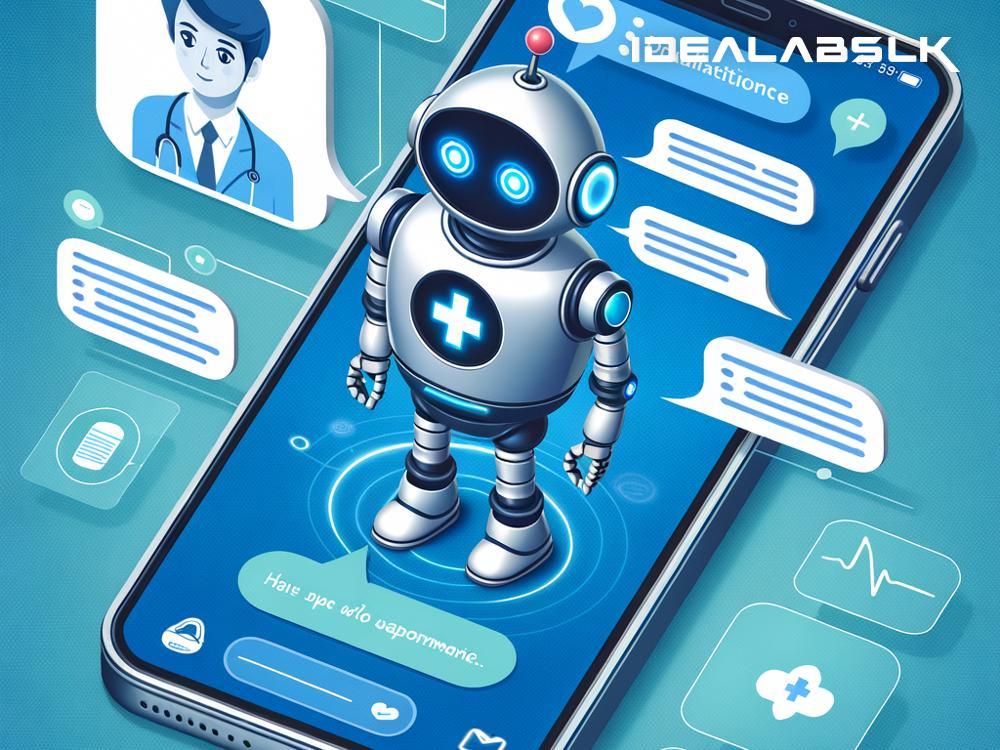The Rising Role of AI in Healthcare: Chatbots Leading the Way
In the fast-paced world we live in, technology is transforming our daily lives, including how we manage our health. One of the most exciting developments in recent years is the growing use of Artificial Intelligence (AI) in healthcare, particularly through chatbots. These AI-powered assistants are not only revolutionizing customer support but also boosting patient engagement in ways we’ve never seen before.
What are Healthcare Chatbots?
Imagine having a health assistant available 24/7, ready to answer your questions, remind you to take your medication, or even help schedule your doctor’s appointments. This is what healthcare chatbots offer. They're computer programs designed to simulate conversations with users, providing information and assistance just like a human would, but through websites, apps, or messaging platforms.
Why are they becoming popular?
Healthcare chatbots are gaining traction for several reasons:
- Accessibility: They're always available, making healthcare information accessible anytime.
- Convenience: With chatbots, you don’t have to wait in long phone queues.
- Personalization: They can provide tailored information based on your health history or preferences.
- Cost-effective: They can handle numerous inquiries simultaneously, reducing the need for as many human staff and saving money.
Enhancing Customer Support
The first major benefit of healthcare chatbots is enhanced customer support. Chatbots can address common queries like explaining symptoms, offering first-aid suggestions, or providing information on available services without human intervention. This immediate response system is a game-changer, especially for non-emergency situations where patients seek quick and reliable advice.
Moreover, chatbots can significantly reduce the workload on healthcare professionals by filtering out general queries from those requiring professional attention. This means doctors and nurses can focus more on critical cases, thus improving the overall quality of care.
Boosting Patient Engagement
Another remarkable advantage of healthcare chatbots is their ability to engage patients more actively in their health management. Through personalized interactions, chatbots can motivate people to follow their health plans, remind them to take medicines, or encourage them to adopt healthier lifestyles.
For instance, a chatbot might send you a friendly reminder to drink water throughout the day or nudge you to go for your daily walk. They can even provide educational content about managing chronic conditions, thus empowering patients with knowledge and fostering a proactive approach to health.
The Future Looks Bright
As AI technology advances, the potential of healthcare chatbots expands. We're looking at a future where chatbots could become a patient's first point of contact in healthcare – assessing symptoms, recommending actions, and even monitoring health progress. Imagine a scenario where your chatbot alerts you to potential health issues based on your symptoms and schedules a doctor’s appointment for you, all without you having to lift a finger.
This doesn’t mean chatbots will replace human healthcare professionals. Instead, they'll act as valuable assistants, enabling doctors to provide more personalized and focused care. The combination of human expertise and AI efficiency could redefine healthcare services, making them more patient-centered and accessible to everyone.
Challenges and Considerations
However, the integration of AI chatbots in healthcare isn’t without challenges. Issues like ensuring the privacy and security of patient data, maintaining the accuracy of the information provided, and building systems that can understand and emulate human empathy are critical.
Moreover, there's the need to make these technologies inclusive, ensuring they're accessible to people of all ages, languages, and tech-savviness levels. Continuous testing, learning, and improvement will be key in overcoming these obstacles.
In Conclusion
The integration of AI through chatbots in healthcare is an exciting development that’s shaping a new era in patient care and support. By enhancing customer support and boosting patient engagement, chatbots are becoming indispensable tools in the healthcare industry. As technology evolves and these AI-powered assistants become even smarter, the possibilities for improving healthcare delivery and patient outcomes seem boundless.
What’s clear is that the future of healthcare is digital, and chatbots are leading the charge. It’s an exciting time for both healthcare providers and patients, as we stand on the brink of a revolution that promises to make healthcare more accessible, efficient, and patient-friendly than ever before.

